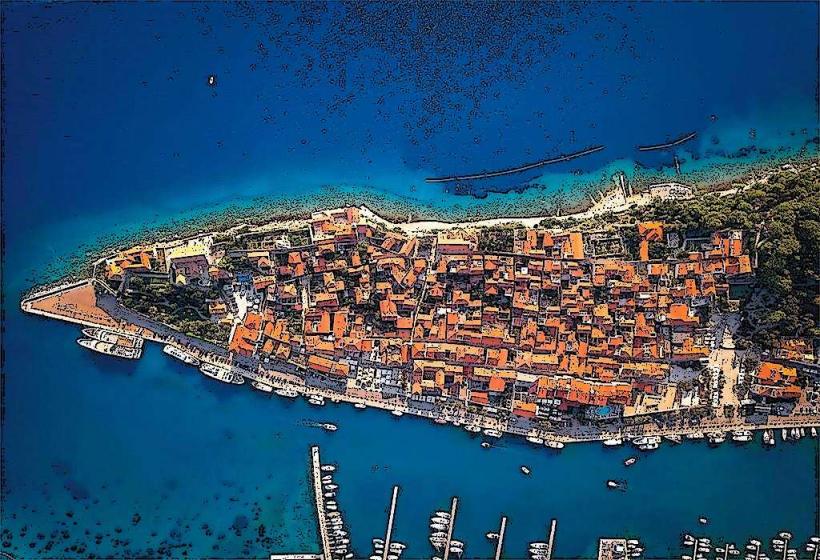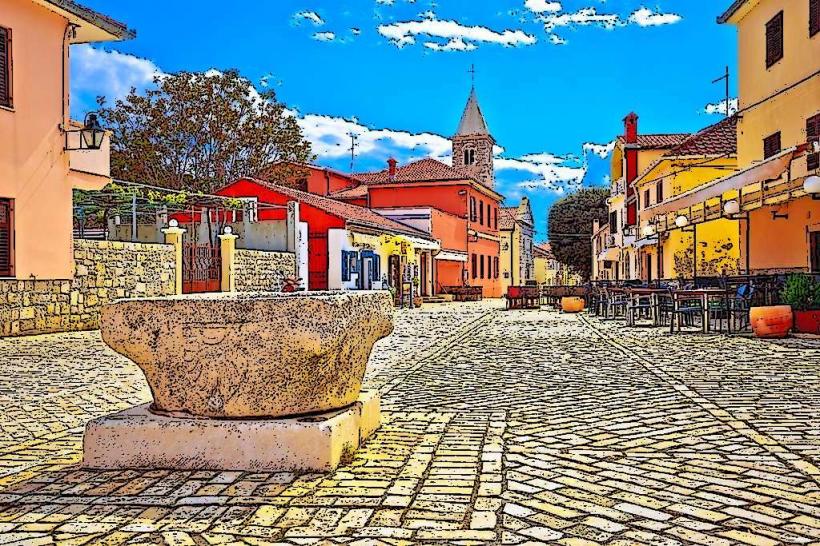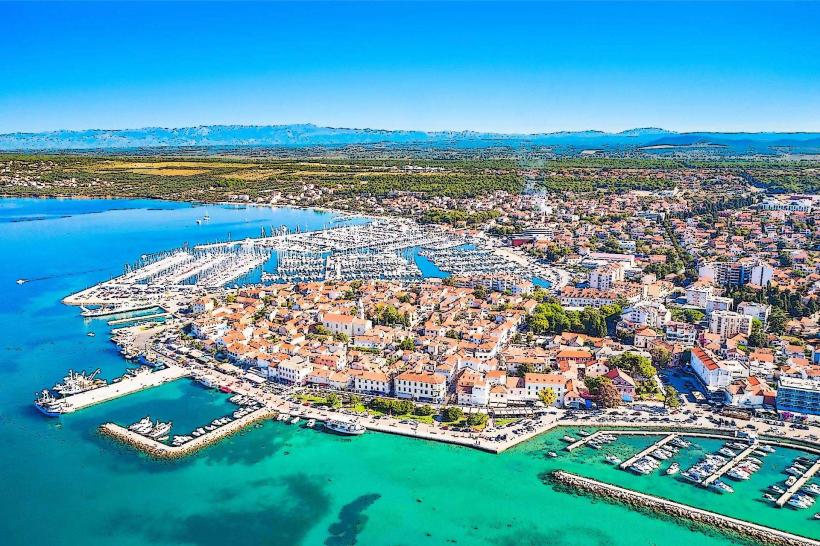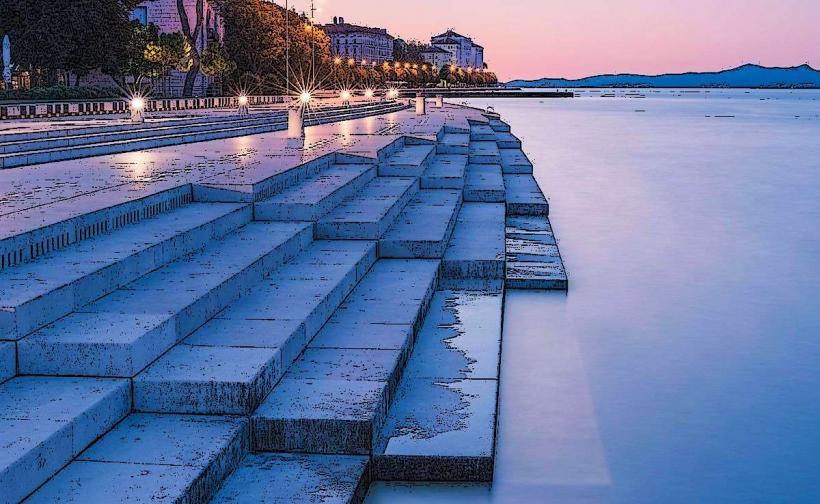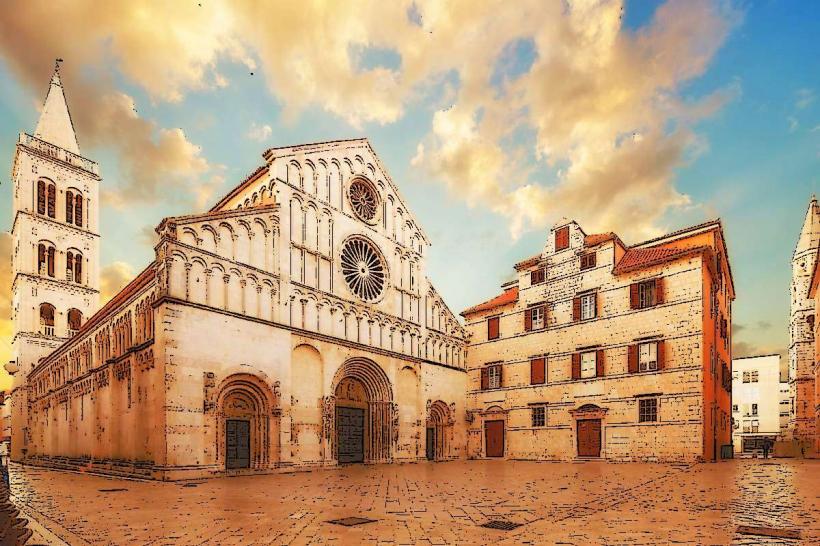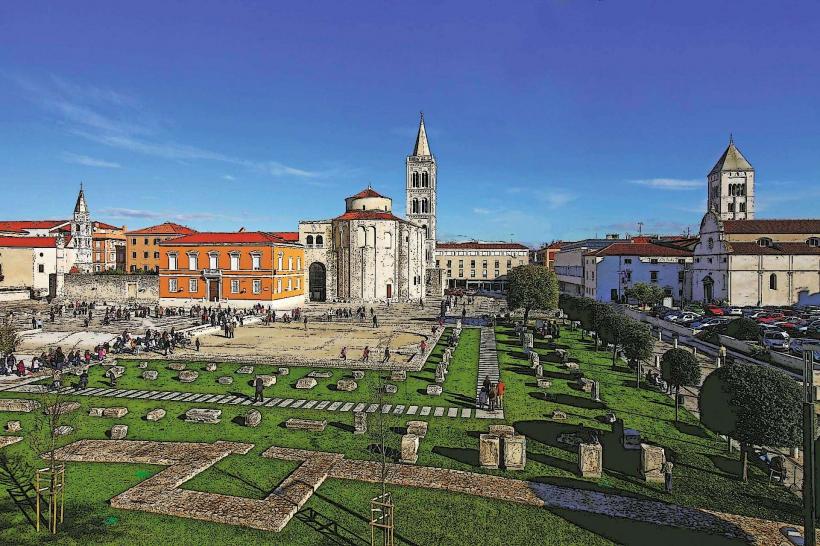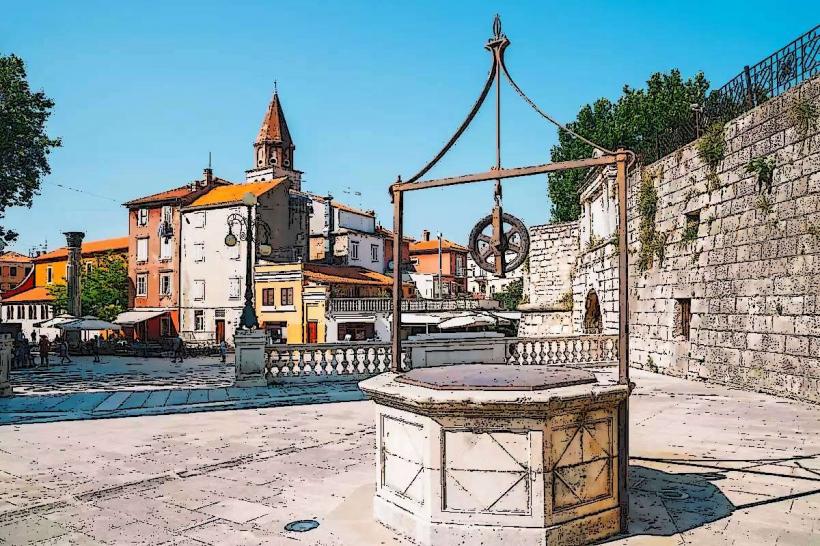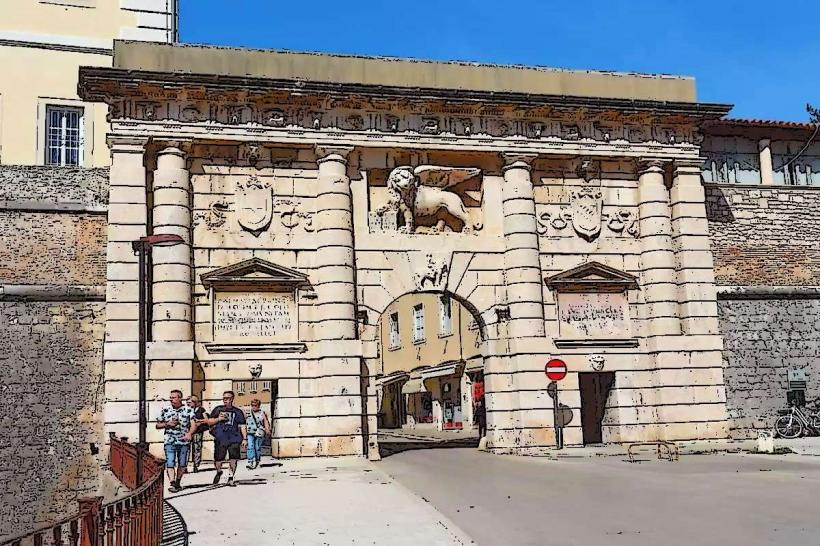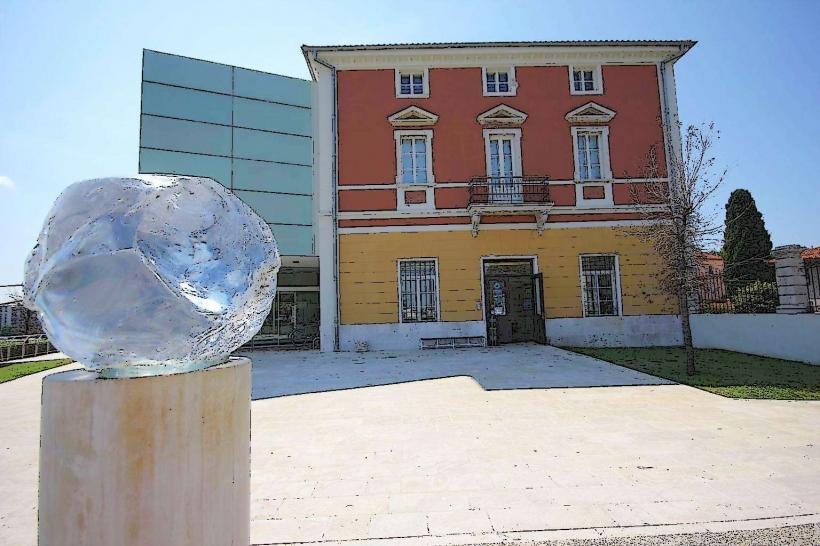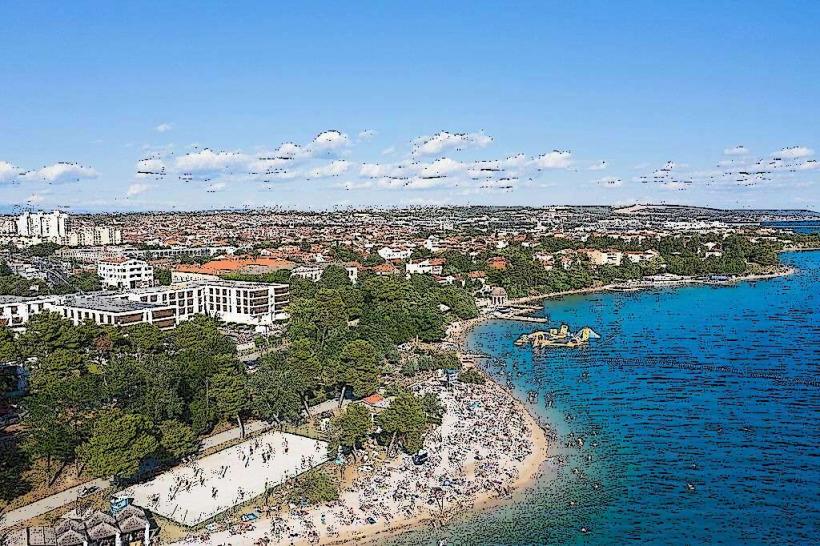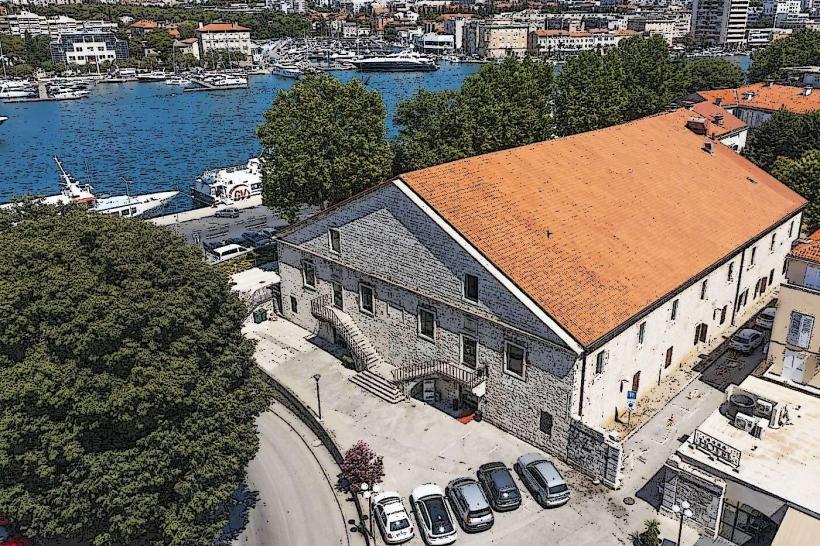Information
Landmark: St. Donatus ChurchCity: Zadar
Country: Croatia
Continent: Europe
St. Donatus Church, Zadar, Croatia, Europe
St. Donatus Church is a monumental pre-Romanesque rotunda situated in the center of the Roman Forum in Zadar, Croatia. It stands as the largest and best-preserved building of its type in the country, characterized by its cylindrical shape and three semi-circular apses.
Visual Characteristics
The structure is built primarily from grey limestone blocks, many of which were salvaged from the surrounding Roman ruins. It features a double-story interior with a central circular space surrounded by an ambulatory and a gallery on the upper level. The church reaches a height of 27 meters and a width of 21 meters, lacking traditional external ornamentation except for shallow pilasters and arched windows.
Location & Access Logistics
The church is located at Trg Rimskog Foruma, approximately 0.5km southeast of the Sea Organ. It is accessible on foot from the main pedestrian thoroughfare, Kalelarga. The nearest public transport is the bus stop at the city bridge (Gradski most), 0.6km away. Paid street parking is available along the Liburnska obala, though the immediate area is a restricted pedestrian zone.
Historical & Ecological Origin
Construction began in the late 8th century and was completed in the early 9th century under the direction of Bishop Donatus of Zadar. Originally named the Church of the Holy Trinity, it was renamed in the 15th century to honor its founder. The foundation incorporates fragments of Roman columns, altars, and pedestals from the 1st-century BC Roman Forum upon which it sits.
Key Highlights & Activities
The church no longer holds religious services and functions primarily as a museum and concert venue. Visitors can explore the interior to view the repurposed Roman architectural fragments embedded in the walls and floor. Due to its exceptional acoustics, the church hosts the International Festival of Medieval and Renaissance Music every summer.
Infrastructure & Amenities
A ticket office is located at the entrance, and public restrooms are available in the adjacent museum buildings. The stone interior remains cool in summer but lacks modern climate control. 5G cell signal is strong throughout the surrounding square. No food vendors are permitted inside, but the Forum is surrounded by cafes and bistros.
Best Time to Visit
Morning hours (09:00–11:00) offer the lowest crowd density and clear natural lighting for viewing the high gallery. The church is open daily from 09:00 to 21:00 during the summer season (June–September) and with reduced hours in winter. Evening visits are recommended during concert dates for the acoustic experience.
Facts & Legends
A verified historical oddity is the visible use of Roman sacrificial altars and column drums as foundation stones, intentionally placed by the medieval builders to signify the triumph of Christianity over paganism. Local legend suggests that Bishop Donatus personally brought the design inspiration from the court of Charlemagne in Aachen.
Nearby Landmarks
Zadar Roman Forum – 0.01km West
St. Anastasia's Cathedral – 0.05km North
Archaeological Museum Zadar – 0.02km East
Church of St. Mary – 0.05km South
The Greeting to the Sun – 0.5km Northwest



